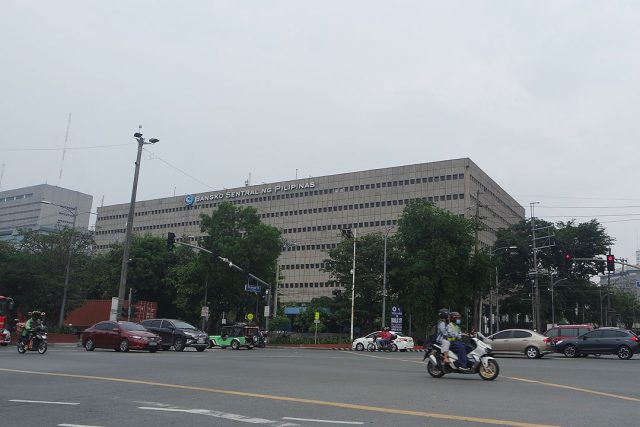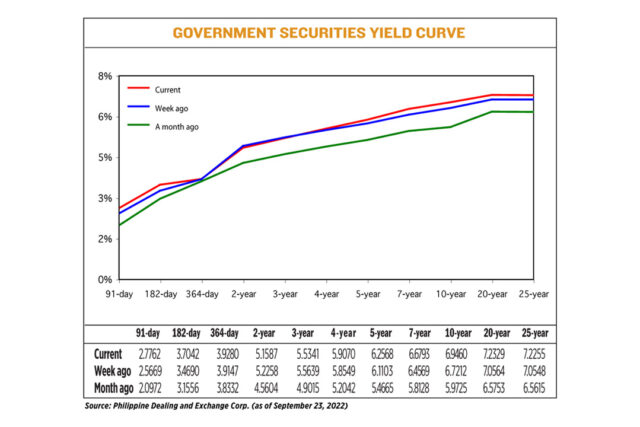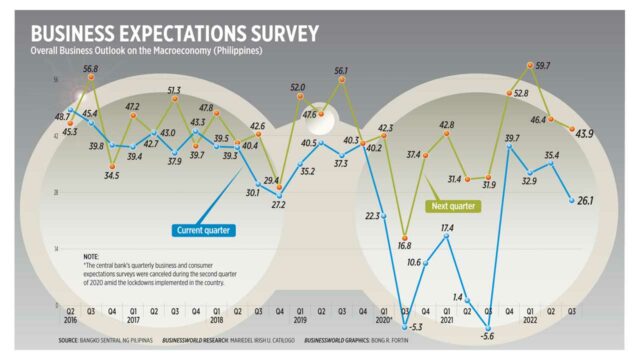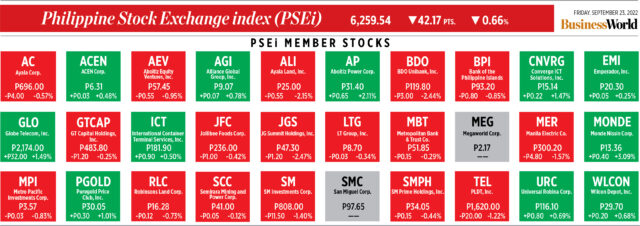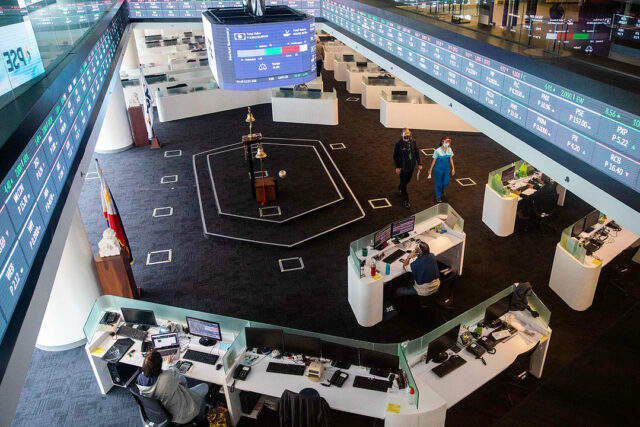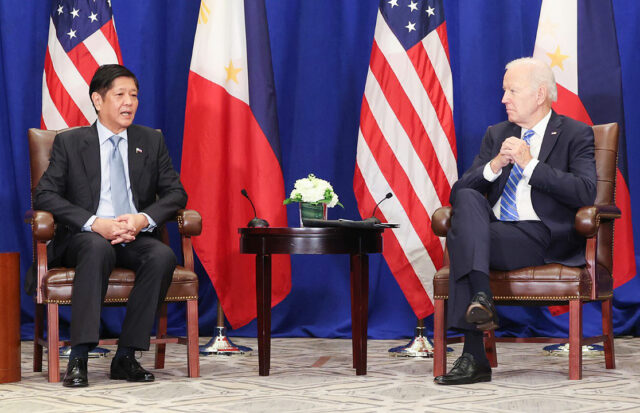By Kyle Aristophere T. Atienza, Reporter
FOREIGN policy experts are detecting signs of steady relations between the Philippines and the United States under the administration of President Ferdinand R. Marcos, Jr. who is seen veering away from his predecessor’s conciliatory stance toward Beijing.
However, some experts said the Philippines’ foreign policy towards China and other rising powers remains vague, noting that it should be among the top concerns of the national security sector.
During his US visit last week, Mr. Marcos expressed his commitment to preserving the Philippines’ alliance with the US, which has been calling for a rules-based order in the Indo-Pacific region amid China’s expansive activities.
“In the context of the country’s current approach toward China, the recent pronouncements and initiatives of President Marcos indicate a shift in the country’s foreign policy,” said Victor Andres “Dindo” C. Manhit, president of Stratbase ADR Institute for Strategic and International Studies.
“Unlike the previous government, which repeatedly announced the country’s separation from the US, the President has been more open to the idea of broadening the country’s network of allies and strategic partners,” he said in a Messenger chat.
Mr. Manhit said a return to US-Philippines relations at a level before former President Rodrigo R. Duterte’s administration is being driven by Mr. Marcos’ “view of the multipolar world” and not a “competition between China and the US that Duterte got drawn in.”
“This marks a clear departure from the foreign policy position pursued by the previous administration.”
Mr. Marcos said in New York on Saturday (PHL time) that his country has no territorial conflict with China, noting that it is Beijing that is claiming Philippine territories.
“I think it’s no surprise to anyone that the Philippines has some of these conflicts with the People’s Republic of China. And the position that the Philippines takes is that we have no territorial conflict with China. What we have is China claiming territory that belongs to the Philippines,” he told Asia Society CEO and former Australian prime minister Kevin Rudd in an interview.
This is the position the Philippines and its American partners “have promoted,” said Mr. Marcos, who said US-Philippines ties could keep tensions in the region at bay.
“That statement is the finest rhetoric from President Marcos,” said Chester B. Cabalza, who studied national security and policymaking at the University of Delaware.
“I think Marcos Jr. is prepared for the consequences of his statements in Washington,” he said. “We will get the feel of the entirety of his core foreign policy, after his official visit to Beijing.”
In a meeting with US President Joseph R. Biden, Jr. last week, Mr. Marcos recognized Washington’s role in maintaining stability in the region.
“That is much appreciated by all the countries in the regions and the Philippines especially,” he said.
“His utterances to Biden is a sound of music to Washington, in time when allegations arise in Beijing that Xi Jinping is being deposed by the Chinese Communist Party (CCP),” said Mr. Cabalza, who has observed “evolving and proactive” US-Philippines relations under Mr. Marcos.
“It is symbolic.”
Several social media posts published by some media outlets based in India showed that Chinese President Xi Jinping has been under house arrest after he was forcibly removed as head of China’s People Liberation Army. The state media and the ruling Chinese Communist Party have yet to release an official confirmation.
“Any monumental shift like that in China will definitely compel Marcos to recalibrate,” Hansley A. Juliano, who has written on global political economy, said in a Messenger chat.
CHINA POLICY
Mr. Juliano and Robin Michael U. Garcia, who teaches political economy at the University of Asia and the Pacific, both believe that Mr. Marcos’ China policy remains vague and lacks substance.
“This is still not a concrete China policy. It is broad and vague,” Mr. Garcia said in a Messenger chat. “There is nothing new with the President’s statement actually. It also does not tell China and the US that much.”
Mr. Garcia said Beijing’s concern is the extent to which the Philippines is willing to compromise and negotiate, while the US is concerned with the level of Philippines’ commitment to asserting its territories in the South China Sea “and the extent to which we’re willing to ally with them.”
“There is not much difference in the motherhood statements he is speaking about here,” Mr. Juliano said.
“As a given countries are supposed to balance their treaty commitments even with competing blocs or groups,” he said. “However, what world leaders do is not give away their strategy publicly.”
Mr. Juliano said changes in the Philippines’ foreign policy, or the rule of engagement with China for that matter, would reflect in the country’s trade as well as international relations (IR) commitments.
“Will the Department of Foreign Affairs under Marcos Jr. and other relevant agencies recalibrate our trade and IR commitments,” he asked. “Or will it remain business as usual?”
“Sometimes the conversation here is not just the individual will of the President, but more his economic managers and business allies,” Mr. Juliano noted. “It has been the case with Duterte and Marcos, and even to a lesser extent Arroyo and Aquino III.”
At the House of Representatives, Speaker Martin G. Romualdez said on Sunday that the chamber will pass any legislation that the President needs to fulfill investment pledges.
“If the President needs any piece of legislation to materialize the objectives of these bilateral trade and investment agreements, we will answer the call,” Mr. Romualdez said in a statement.
Mr. Marcos urged global investors, traders, and other guests at the New York Stock Exchange to come to the Philippines and tap its potential as one of the fastest-growing economies in Asia.
In terms of economic policy, maintaining the Philippines relationship with mainland China is “weightier,” Mr. Juliano said. “However, there has been more consistent cultural and economic ties with the Philippines by virtue of our shared American alliance.”
In his interview with the Asia Society, Mr. Marcos said while his government would maintain its position on the sea dispute with China, it will continue to engage Beijing on other aspects.
The Philippine leader told Philippine media after the event that he’s willing to explore all options in the handling of territorial disputes with China.
Experts have said the Philippines’ foreign policy direction would likely be tested by the escalating dispute between China and Taiwan, which is just 190 kilometers away from northern Philippines.
“The ongoing conflict between China and Taiwan poses a risk to the Philippines and the rest of the region,” Mr. Manhit said. “This should be viewed as a part of a more complex and multifaceted geopolitical landscape that the Philippines should navigate.”
The Philippines should strategize with the intent of minimizing risks and safeguarding the country’s national interests, he said.
Mr. Biden earlier said American forces would defend Taiwan in case of a Chinese invasion, according to a Reuters report. US officials have made the same commitment to Manila, but local experts have doubted Washington would keep its promise.
Mr. Cabalza, meanwhile, said the government’s food security push should prompt Mr. Marcos to protect Filipino fishermen being harassed by Beijing.
His action on food security as agriculture secretary will open doors on how he will protect Filipino fishermen who are disallowed to fish in their traditional fishing ground in the contested waterways,” he said. “He needs to use his political capital to safeguard our territorial integrity and national sovereignty from encroachment and illegal fishing of Chinese fishing fleets.”
A comprehensive territorial defense should involve the Bureau of Food and Aquatic Resources and Department of Agriculture, which should be responsible in protecting marine natural resources, Mr. Cabalza said.
Mr. Marcos took office in June, vowing to make the Philippines “a friend to all and an enemy to none.” — with a report from Kyanna Angela Bulan


